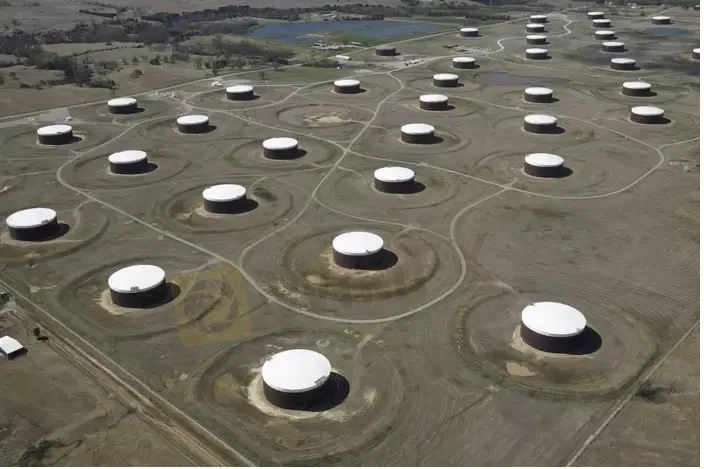简体中文
繁體中文
English
Pусский
日本語
ภาษาไทย
Tiếng Việt
Bahasa Indonesia
Español
हिन्दी
Filippiiniläinen
Français
Deutsch
Português
Türkçe
한국어
العربية
Oil prices inch higher as U.S. fuel inventories fall, dollar weakens
Abstract:Oil prices recovered slightly on Wednesday as data pointed to firm fuel demand in the United States, providing respite after a 5% drop a day earlier on fear of demand suffering from increased China COVID-19 curbs and central bank interest rate hikes.

U.S. West Texas Intermediate (WTI) crude futures jumped 85 cents, or 0.9%, to $92.49 a barrel at 0456 GMT, after sliding $5.37 in the previous session driven by recession fears.
Brent crude futures for October, due to expire on Wednesday, climbed 70 cents, or 0.7%, to $100.01 a barrel, trimming Tuesdays $5.78 loss. The more active November contract was up 93 cents, or 1%, at $98.77 a barrel.
The price swings since the Ukraine conflict began six months ago have rattled hedge funds and speculators and thinned trading, which in turn has made the market whipsaw even more, as seen on Tuesday.
“I can‘t stress, the low liquidity means we’re in for some volatile moves,” said Commonwealth Bank commodities analyst Vivek Dhar.
Supporting market sentiment on Wednesday, data from the American Petroleum Institute (API) showed gasoline inventories fell by about 3.4 million barrels, while distillate stocks, which include diesel and jet fuel, fell by about 1.7 million barrels for the week ended Aug. 26 [API/S].
The drawdown in gasoline stockpiles was nearly triple the 1.2 million barrel drop that eight analysts polled by Reuters had expected on average. For distillate inventories they had expected a drop of about 1 million barrels.
However API data showed crude stocks rose by about 593,000 barrels, against analysts estimates of a drop of around 1.5 million barrels.
A slightly weaker U.S. dollar also shored up the market, with oil consequently being cheaper for buyers holding other currencies.
Price gains were capped by worries that some of China‘s biggest cities – from Shenzhen to Dalian – are imposing lockdowns and business closures to curb COVID-19 at a time when the world’s second-biggest economy is already experiencing weak growth.
On the supply side, oil exports from Iraq were unaffected by the worst violence seen in Baghdad for years, three sources told Reuters on Tuesday. Clashes eased on Tuesday after powerful cleric Moqtada al-Sadr ordered his followers to end their protests.
The main factor supporting prices at the moment is talk from members of the Organization of the Petroleum Exporting Countries (OPEC) and allies, together called OPEC+, that they might cut output to stabilise the market. OPEC+ is next due to meet on Sept. 5.
“As far as OPEC cuts go, I dont think anybody believes that immediate cuts are going to have major effects,” said Sukrit Vijayakar, director of energy consultancy Trifecta.
Secondly, since the threat of a recession seems to be real, investors would be willing to let Brent hover between $90 and $110 for now, he added.

Disclaimer:
The views in this article only represent the author's personal views, and do not constitute investment advice on this platform. This platform does not guarantee the accuracy, completeness and timeliness of the information in the article, and will not be liable for any loss caused by the use of or reliance on the information in the article.
Read more

Malaysian Man Loses RM113,000 in Foreign Currency Investment Scam
A 57-year-old Malaysian man recently fell victim to a fraudulent foreign currency investment scheme, losing RM113,000 in the process. The case was reported to the Commercial Crime Investigation Division in Batu Pahat, which is now investigating the incident.

Broker Review: What is FXTM exactly? Is FXTM a Scam?
FXTM is a global forex broker founded in 2011. In today’s article, we are going to show you what FXTM looks like in 2024.

FCA Alerts Traders to New List of Unregulated and Clone Brokers
Protect your investments! Learn about unregulated firms flagged by the FCA and discover how WikiFX helps traders avoid scams and choose legitimate brokers.

The Funded Trader: Reactivates Accounts with Revised Payout Structure
Proprietary trading firm The Funded Trader has detailed its financial recovery efforts following a turbulent period marked by an unsustainable payout model. Addressing these challenges publicly, the firm outlined the steps being taken to resolve outstanding obligations and ensure operational sustainability.
WikiFX Broker
Latest News
Webull Partners with Coinbase to Offer Crypto Futures
eToro Expands Nationwide Access with New York Launch
GCash, Government to Launch GBonds for Easy Investments
Why Is UK Inflation Rising Again Despite Recent Lows?
Hackers Charged for $11M Crypto Theft Using SIM-Swaps
Interactive Brokers Launches Tax-Friendly PEA Accounts in France
Google Warns of New Deepfake Scams and Crypto Fraud
Former Director Sentenced for Share Disclosure Breach
PayPal Expands PYUSD Use for Seamless Cross-Border Transfers
Trump Media in Talks to Acquire Crypto Firm Bakkt
Currency Calculator


